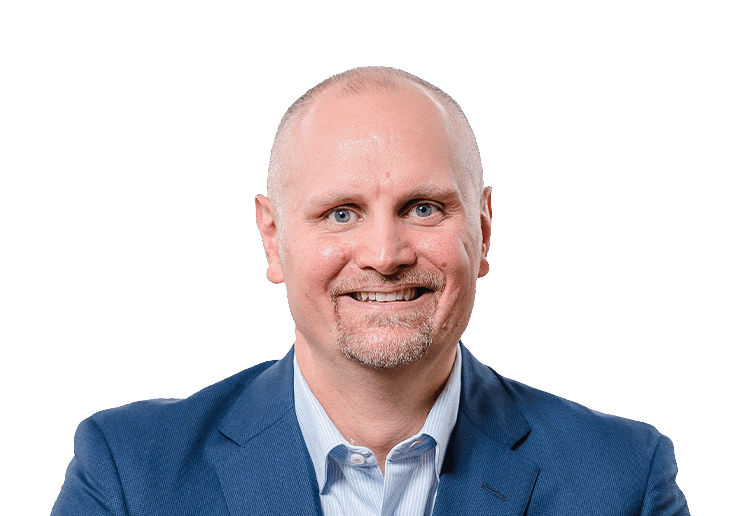
Brian D. Pieninck didn’t take a conventional path to healthcare leadership. He started his career as an 18-year-old IT contractor and spent two decades working across the industry before becoming President and CEO of CareFirst Blue Cross Blue Shield. He now also serves as Chair of the Blue Cross Blue Shield Association, bringing both local and national perspective to the role.
In this episode, Keith Figlioli speaks with Pieninck about what it means to lead a not-for-profit regional payer at a time of seismic change. With 3.6 million members and coverage that spans commercial, Medicare, and Medicaid, CareFirst has become a vital part of healthcare access and infrastructure across the Mid-Atlantic. Pieninck reflects how demographic shifts, rising costs, and policy uncertainty are challenging how healthcare organizations evolve, while staying focused on long-term outcomes.
Pieninck and Keith discuss:
- Advancing health equity as part of the community. Pieninck sees CareFirst not just as a payer, but as part of the region’s civic infrastructure, creating economic opportunities, delivering care through primary and urgent care locations, and supporting long-term health equity initiatives across Maryland, DC, and Northern Virginia.
- Medicaid coverage and its downstream impact. With nearly half of children in Maryland and DC relying on Medicaid, Pieninck warns that cuts or disruptions don’t reduce the need for care; they push it into higher-cost, less coordinated settings like emergency departments.
- The balloon effect in healthcare financing. As costs are squeezed in one area, they inflate in another. Pieninck challenges the idea that market forces can realign care efficiently. He discusses how efforts to contain spending in one area often lead to inefficiencies elsewhere, and the system ends up paying more later because early, lower-cost interventions are underfunded or inaccessible.
- Innovation that simplifies the system. Through CareFirst’s innovation arm, Healthworx, Pieninick highlights the need to design a system that works for people by reducing complexity and embedding support directly into the healthcare experience.
- AI and infrastructure: opportunity meets readiness. With nearly three decades of experience on the technology side of healthcare, Pieninck is bullish on AI’s potential—especially now that it’s available at a price point that can scale. Real progress, he notes, will depend on thoughtful governance, better interoperability, and models built around human needs.
This episode offers a look at how one regional plan is thinking through the tensions between access, affordability and innovation, and what that means for the broader system.
To hear Brian D. Pieninck and Keith discuss these challenges in depth, listen to this episode of Healthcare is Hard: A Podcast for Insiders.
